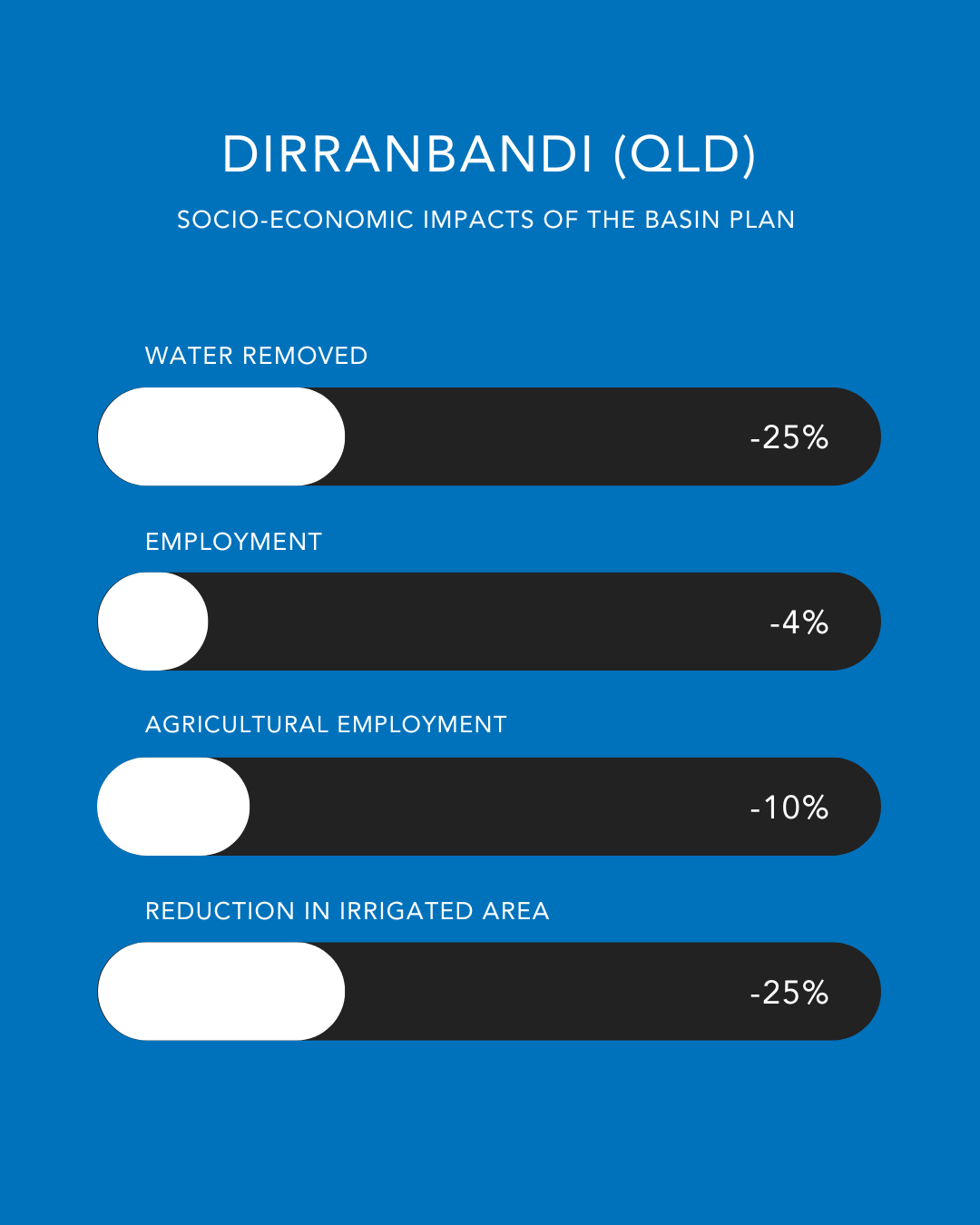Basin communities fear being overlooked in upcoming Evaluation
23 July 2025, Canberra: Basin communities fear socio-economic impact assessments soon to be released by the Murray-Darling Basin Authority (MDBA) will water down the true impact, overlooking community and industry-level data, in their Basin-scale assessment.
“Basin Plan legislation requires 5-yeraly Evaluations, but at a Basin-scale”, said Zara Lowien, National Irrigators’ Council (NIC) CEO, “we know the most severe impacts are felt at a local community level, and within specific industries, but these impacts get smoothed out when the assessment zooms to the Basin-scale.”
“We fear this new assessment will look at the forest but miss the trees – looking at the Basin-scale will show the broad canopy but will miss what’s happening on the ground.”
“Basin-wide data will certainly not reflect what communities have experienced on the ground, and this will leave communities feeling very overlooked. We know the MDBA can do it, they have produced it before electing to tell the full story in Basin community profiles.”
In 2016 and 2017, the MDBA presented community profiles around the Basin but there is no indication this will occur as part of the imminent 2025 Evaluation. NIC recently updated data in four of these communities – Berri-Barmera in South Australia, Wakool in Southern New South Wales, Collarenebri in Northern NSW and Dirranbandi in Queensland – to see how they were trending since the MDBA’s previous profile reports [Link here and snpshot below]









Ms Lowien says, “our analysis highlighted that while there can be different degrees of impact, there is a clear relationship when you remove water from production - irrigated area reduces, and this contributes to employment and community changes”.
“We know not all communities have the same experience, and if you zoom out far enough, any problems appear to go away, making it easier for Governments to brush off community concerns because of other reasons, but that doesn’t change the reality of those living it.”
“No community should be forgotten or be brushed off because it was already changing,” said Ms Lowien.
The Basin- scale of the upcoming Evaluation is likely to also affect how environmental outcomes will be reported, with Ms Lowien saying, “the same issues are likely for environmental assessments”.
“Thus, the evaluation is likely to present an incomplete picture of any benefits and impacts.”
“We must acknowledge the Basin-scale limitations and as a priority, close any information gaps to better inform the Review of the Basin Plan next year”.
“That’s why we are calling on the MDBA to go beyond the simplistic Basin-scale assessment, and include ground-truthed community, catchment and industry level data in all evaluations including updating the 2025 Evaluation.”
“One in three litres of irrigation water in the Basin is now for the environment and we must look to optimise this water and enhance outcomes locally and at the Basin-scale, for our environment and Basin communities collectively,” said Ms. Lowien.
Media Contact: Zara Lowien, CEO | 0427 521 399 | ceo@irrigators.org.au

